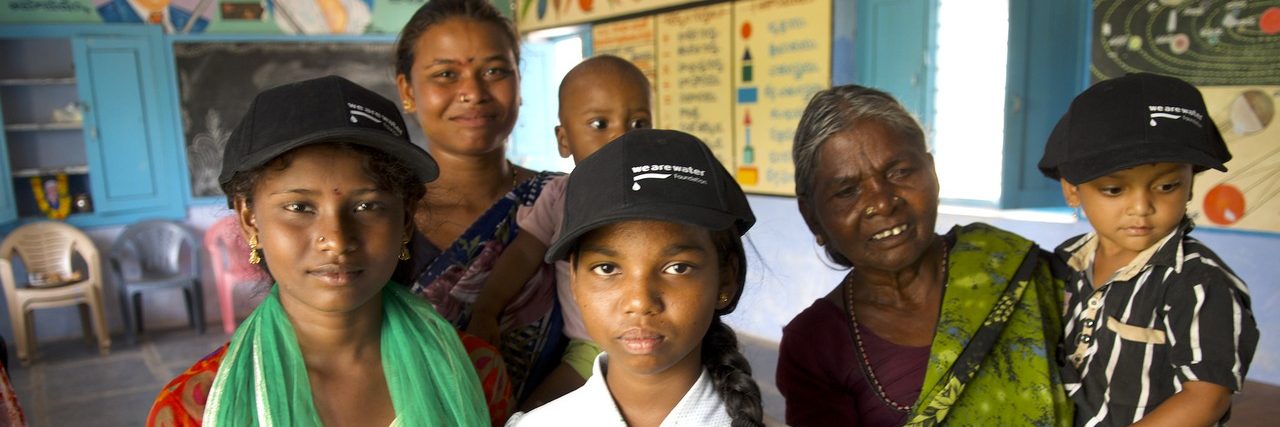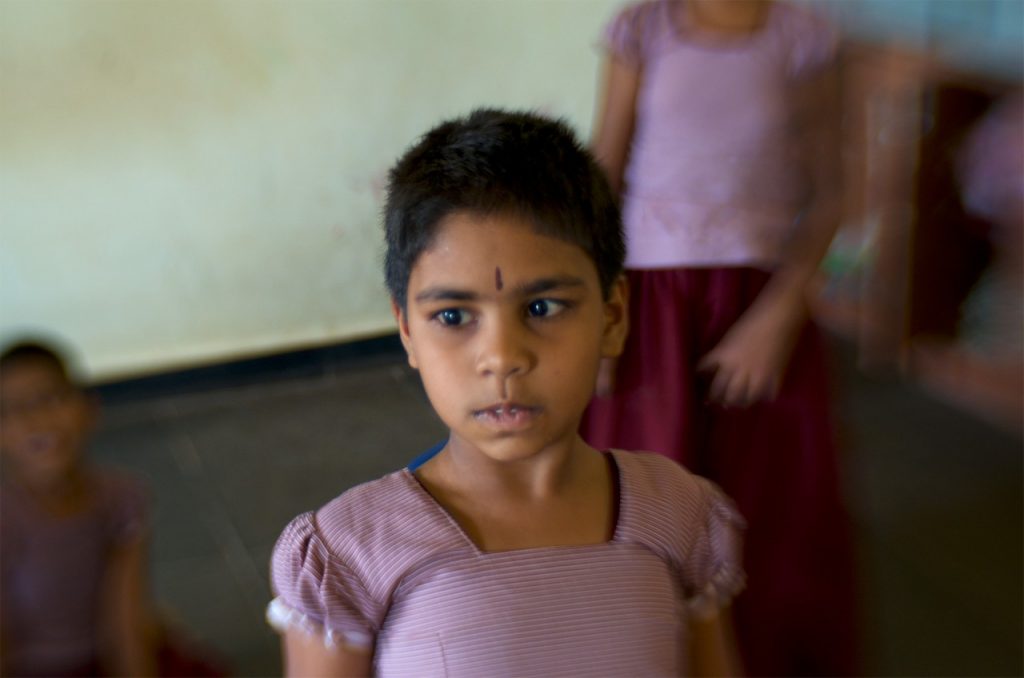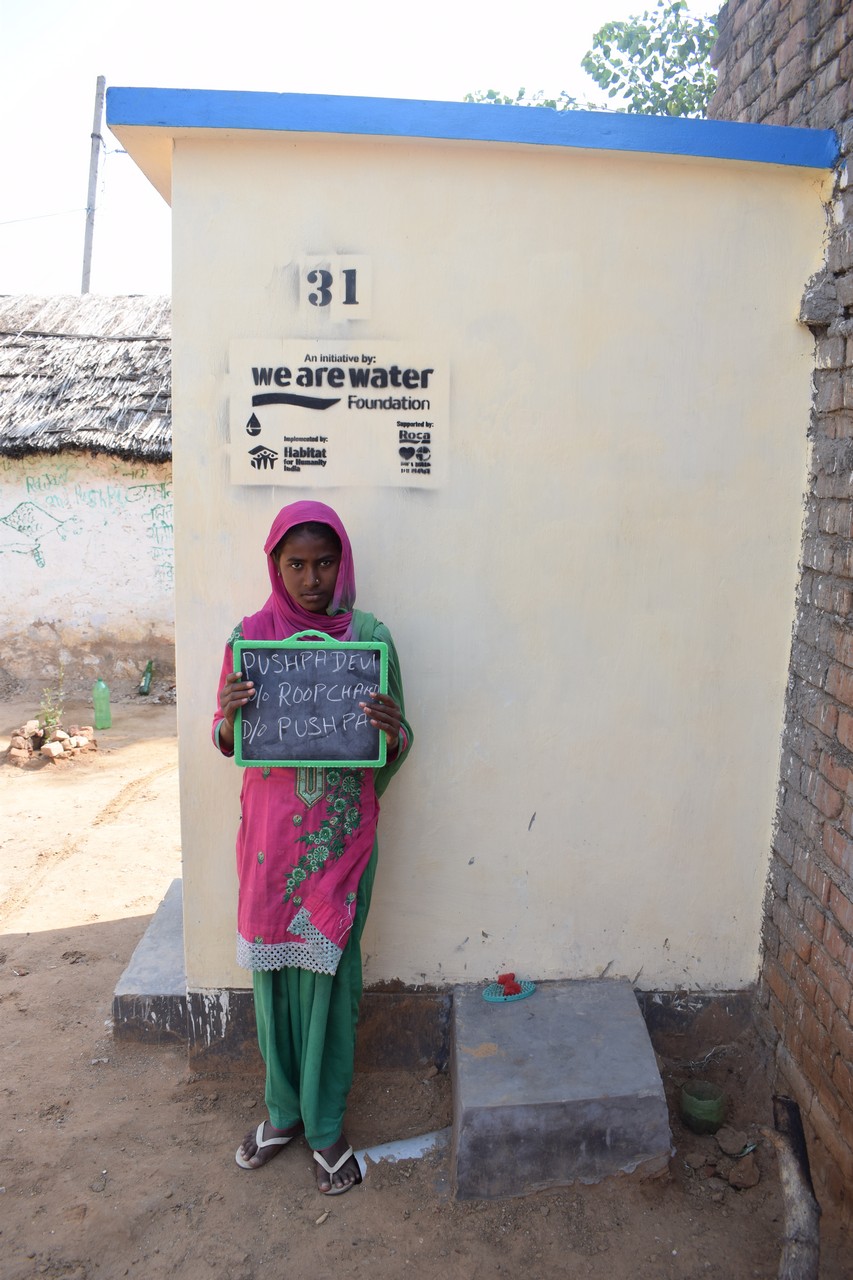Khijurivas, Bhiwadi, Alwar, Rajasthan, India
In collaboration with

July 2023 – December 2023
Objectives
- To improve hygiene and sanitation practices and behaviours among students and the community of Khijurivas village.
- To construct a sanitation complex at the school.
- To enhance access to drinking water by providing a safe system and water coolers.
Beneficiaries
512 direct
School students (225 girls).

On the ground
One of the most water-stressed areas in India, with notable fluoride pollution and a high school dropout rate due to lack of safe sanitation facilities.
E In India, according to data from the WHO and UNICEF Joint Monitoring Program (JMP), in 2022, about 157 million people (11.1% of the population) practised open defecation, and more than 37 million ( 2.52%) were supplied by surface water or unimproved sources.
On the other hand, diarrhoea is the third cause of child mortality in India and is responsible for 13% of all deaths per year in children under five.
The World Health Organization (WHO) and the United Nations International Children’s Emergency Fund (UNICEF) estimate that diarrheal morbidity can be reduced by an average of 6 to 20% with improvements in water supply and by 32% with improvements in sanitation.
Research shows that adequate sanitation facilities in communities can reduce disease by 48% and significantly improve community health. Teaching children about hygiene and sanitation is the key to changing India’s open defecation landscape, as children are effective agents of change in The selected project area faces issues related to the lack of clean drinking water, which often hinders students’ attendance at school. Due to the absence of safe water and sanitation facilities, many children, mostly girls, drop out of school, which is a detriment to their future and that of their community.their community.
Rajasthan is the state with the highest water stress in India. The monsoon season is brief and brings limited rainfall. Unfortunately, nearly 25% of the state’s villages also suffer from high fluoride levels in groundwater. Access to clean drinking water in communities and schools is crucial for the younger generation’s health.
The chosen location in Rajasthan also needs more sanitation facilities in schools. The existing toilets are in poor condition and non-functional. Therefore, the construction of new sanitation facilities can enable students to use safe, clean, and hygienic facilities, which is especially beneficial for girls.

In detail
The project is based on constructing a sanitation complex at the Khijurivas government school.
At the same time, access to safe drinking water will be improved by also providing fresh water dispensers to increase its availability.
Prospects for sustainability
Improvements in hygiene, safe water and sanitation will benefit students’ health, especially girls, who now have more privacy and dignity. Students will be the main guarantors of the sustainability of the facilities. These improvements could also increase the number of new students. The local NGO, associated with Habitat for Humanity, will carry out workshops and awareness-raising activities in schools and villages to further support the culture of water, sanitation and hygiene that is the basis of the project’s sustainability.


